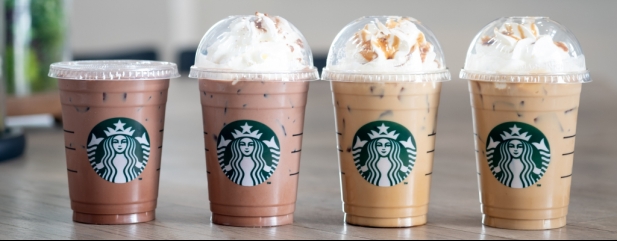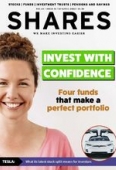Archived article
Please note that tax, investment, pension and ISA rules can change and the information and any views contained in this article may now be inaccurate.
Why Starbucks boss Howard Schultz has suspended buybacks

The founder of Starbucks (SBUX:NASDAQ), Howard Schultz has returned as CEO, with the coffeehouse colossus seeking a permanent replacement for departing chief Kevin Johnson.
And in a move that surprised Wall Street, he has immediately suspended billions of dollars in share buybacks to free up cash to invest in employees and stores whilst trying to fend off US trade unions.
Buybacks don’t guarantee positive share price performance, as Starbucks’ 25% year-to-date drop demonstrates, and Schultz is keen to prioritise spending on cafes and staff to drive long term growth and ensure Starbucks stays competitive.
There’s a lesson in this for corporate leaders in the UK, where nearly £33 billion of buybacks have already been announced by FTSE 100 firms so far in 2022 according to AJ Bell’s first ‘Buyback Bulletin’, leaving them on course to break 2018’s record £34.9 billion. On a sector basis financials are currently the largest generator of FTSE buybacks in 2022, followed by oil & gas then consumer staples.
Management’s willingness to purchase stock will be seen by bulls as further support for their argument that UK shares are cheap. Yet as AJ Bell’s investment director Russ Mould points out, history shows companies have a habit of buying stock back during bull markets (when their stocks tend to be more expensive) and not doing so during bear ones (when their stock tends to be much cheaper).
Buybacks disappeared when stocks were at their cheapest (2009, 2020) and proliferated near market tops (2006, 2018) when stocks were at their most expensive.
Without satisfied customers, there will be no business at all, a risk Starbucks’ Schultz clearly recognises, so the would-be investor must ensure that the firm is spending enough on research, product development, capital investment and marketing before it gives away any cash.
There is also the risk that firms buy back stock using debt, potentially weakening their balance sheets and competitive position.
DISCLAIMER: Financial services company AJ Bell referenced in this article owns Shares magazine. The author of this article (James Crux) and the editor (Tom Sieber) own shares in AJ Bell.
Important information:
These articles are provided by Shares magazine which is published by AJ Bell Media, a part of AJ Bell. Shares is not written by AJ Bell.
Shares is provided for your general information and use and is not a personal recommendation to invest. It is not intended to be relied upon by you in making or not making any investment decisions. The investments referred to in these articles will not be suitable for all investors. If in doubt please seek appropriate independent financial advice.
Investors acting on the information in these articles do so at their own risk and AJ Bell Media and its staff do not accept liability for losses suffered by investors as a result of their investment decisions.
Issue contents
Editor's View
Feature
- Invest with confidence - four funds which make a perfect portfolio
- European shares tend to do well when the US raises interest rates... not this time?
- Why Trainline still faces a big test despite ticket commission win
- Our 2022 stock portfolio rises against a volatile market backdrop
- ESG investing faces a watershed after Russia’s invasion of Ukraine
Great Ideas
- Euromoney set to benefit from strong growth as data-driven businesses excite
- Zoo Digital sets up shop in Scandi-thriller homeland after Bollywood move
- Invest in Rathbones as a wealth management bid frenzy highlights value appeal
- Soaring book sales help publisher Bloomsbury beat sales and profit expectations
- Casual dining group The Fulham Shore offers great scope for growth
- Belvoir continues to enjoy strong tailwinds in the UK property market

 magazine
magazine








